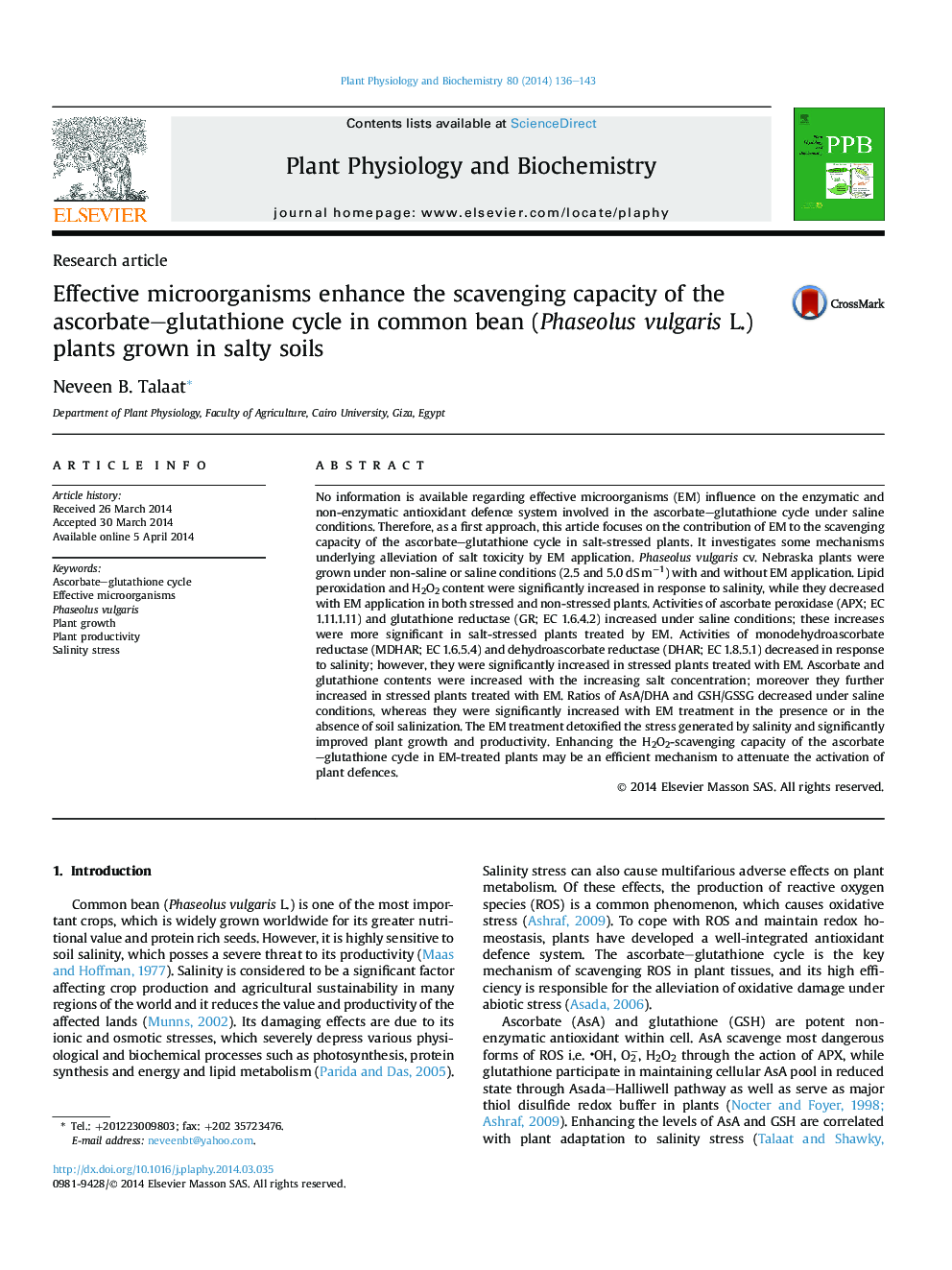| کد مقاله | کد نشریه | سال انتشار | مقاله انگلیسی | نسخه تمام متن |
|---|---|---|---|---|
| 2014822 | 1541941 | 2014 | 8 صفحه PDF | دانلود رایگان |

• Effective microorganisms' application alleviated the stress generated by salinity.
• Effective microorganisms' treatment enhanced plant growth and its productivity.
• Effective microorganisms' application detoxified ROS synthesized.
• Effective microorganisms' treatment alleviated the peroxidation of membrane lipids.
• Effective microorganisms' application improved the plant antioxidant defence system.
No information is available regarding effective microorganisms (EM) influence on the enzymatic and non-enzymatic antioxidant defence system involved in the ascorbate–glutathione cycle under saline conditions. Therefore, as a first approach, this article focuses on the contribution of EM to the scavenging capacity of the ascorbate–glutathione cycle in salt-stressed plants. It investigates some mechanisms underlying alleviation of salt toxicity by EM application. Phaseolus vulgaris cv. Nebraska plants were grown under non-saline or saline conditions (2.5 and 5.0 dS m−1) with and without EM application. Lipid peroxidation and H2O2 content were significantly increased in response to salinity, while they decreased with EM application in both stressed and non-stressed plants. Activities of ascorbate peroxidase (APX; EC 1.11.1.11) and glutathione reductase (GR; EC 1.6.4.2) increased under saline conditions; these increases were more significant in salt-stressed plants treated by EM. Activities of monodehydroascorbate reductase (MDHAR; EC 1.6.5.4) and dehydroascorbate reductase (DHAR; EC 1.8.5.1) decreased in response to salinity; however, they were significantly increased in stressed plants treated with EM. Ascorbate and glutathione contents were increased with the increasing salt concentration; moreover they further increased in stressed plants treated with EM. Ratios of AsA/DHA and GSH/GSSG decreased under saline conditions, whereas they were significantly increased with EM treatment in the presence or in the absence of soil salinization. The EM treatment detoxified the stress generated by salinity and significantly improved plant growth and productivity. Enhancing the H2O2-scavenging capacity of the ascorbate–glutathione cycle in EM-treated plants may be an efficient mechanism to attenuate the activation of plant defences.
Journal: Plant Physiology and Biochemistry - Volume 80, July 2014, Pages 136–143